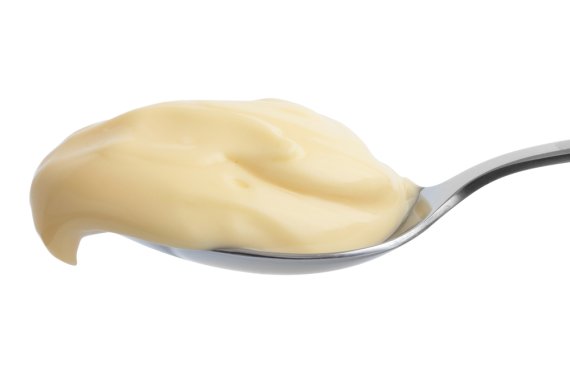Mayonnaise contains lecithin, an example of an emulsifier in food. (Photo: Shutterstock)
In the study at Georgia State University in the US, published in Cancer Research, mice were administered polysorbate 80 (E433) and carboxymethyl cellulose (E466) via their food. They were given dosages corresponding to high levels of consumption of the processed foods that contain these emulsifiers.
The diet led to a change in the gut flora in the mice, causing mild inflammation that made the mice more susceptible to the development of intestinal tumours.
Kampman qualifies the results by pointing out that this is just one study. ‘You always need multiple studies, including research on humans, before you can draw any conclusions.’ But Kampman does think it is interesting research and the first sign of a possible link between emulsifiers in food and intestinal cancer. ‘I think this needs to be investigated thoroughly in further studies.’
Clinical trial
For the studies in humans, she would be interested in a comparison of the gut flora in people with a high intake of emulsifiers via their food with the flora of people who hardly consume any emulsifiers. A clinical trial could then show what happens to the gut flora and intestinal inflammation in people with a high intake of emulsifiers when they are put on a diet with almost no emulsifiers.
It has been known for some time that intestinal cancer can be caused by inflammation in the intestines. A link has also been demonstrated between changes to the composition of gut flora and intestinal cancer in humans. ‘But we don’t know whether that is a consequence of the disease or the cause,’ says Kampman. Her group is working on a study of 1500 patients with intestinal cancer to get a better understanding of this.
Predicting the effect on humans from animal tests is always very tricky.
Should we be avoiding emulsifiers as a precautionary measure? ‘There are other E-numbers that have been shown to be carcinogenic in animal testing but that humans consume in such small doses that they don’t lead to intestinal cancer. Predicting the effect on humans from animal tests is always very tricky.’

